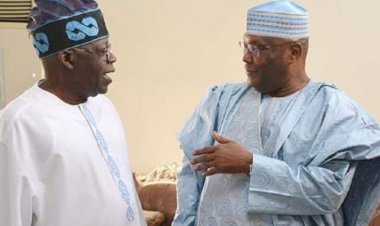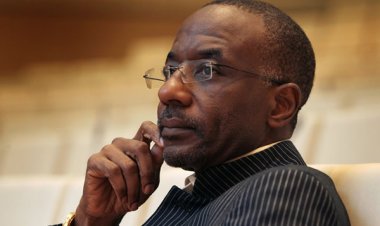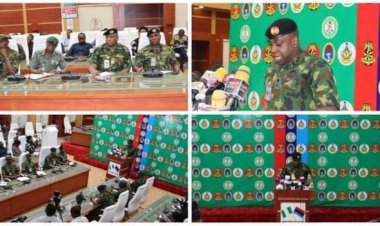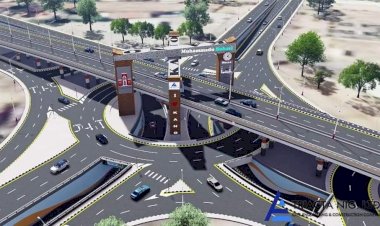FULANI, VILLAINS OR VICTIMS - 4
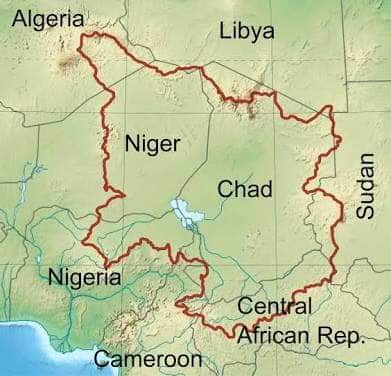
The factors that actually caused the four 4 Fulani Jihads in Fouta Toro, Fouta D’Jalon, in Hausa land and in Macina were similar and inarguably religious, ethnic and socio-economic in nature, as follows-:
1. Religious Reasons
The first reason why the Fulani leaders fought the Jihad in areas indicated was to rid the region of pagan practices. Given that rulers of the traditional West African kingdoms where Islam was earlier accepted were mixing practice of the religion with pagan practices and placed obstacles in the way of practicing the Islamic faith in their areas was enough reason that existed for a Jihad. That is a settled fact of history as agreed by most scholars of the subject.
2. Ethnic Reasons
Scholars are also agreed that the causes of the Fulani Jihad was not only religious but also ethnic. The fact that all the 14 flag bearers appointed by Usman Dan Fodio after the Jihad in Hausa land were Fulani except Mallam Yakubu of Bauchi, who was Hausa, lends credence to the suggestion that the Fulani Jihad was fought for ethnic reasons.
The 14 flag bearers were Umar Dallaji of Katsina, Sulaiman of Kano, Malam Musa of Zaria, Modibbo Adama of Adamawa, Buba Yero of Gombe, Mallam Yakubu of Bauchi, Malam Dendo of Nupe, Alimi of Ilorin, Dan Tunku of Kazaure, Ishaku of Daura, Sambo of Hadejia, Muhammadu Manga of Misau, Ibrahim Zaki of Katagum and Muhammadu Wabi of Jama’are.
However it is true to say that in Gobir where the first incident that sparked the real fight between the Hausa rulers and the forces of Dan Fodio, was the attack made on the settlement of one of Dan Fodio’s students, a Hausa scholar named Abd al Salam, by forces of the Hausa king of Gobir Bawa Jangwarzo. This attack made Abd al-Salam took refuge with some Fulani and Dan Fodio’s brother, Abdullahi, helped Abd al-Salam by freeing Abd al-Salam’s disciples that were taken prisoner by the forces of Gobir. It was therefore in defence of Abd al- Salam, a Hausa Islamic cleric, that led to Fulani forces’ attack on Gobir, which many said, was in self defence. This is an immediate cause that met many remote causes of the Jihad.
Despite this, there is also another reason why it is widely believed that the Fulani Jihad in Hausa land was fought for ethnic reasons. Hausa rulers who survived the Fulani Jihad battles and continued as Emirs along with Fulani Emirs were Emir of Yawuri, a non-Fulani, who survived only because he accepted the terms of surrender from Dan Fodio which other Hausa Kings refused to accept and therefore opted to fight a war, which they lost.
The second Hausa King who survived was Emir of Kabbin Argungu where despite the initial Fulani success in 1808, the Hausa successfully resisted the Fulani and remained in power to date.
Then there was Daura. During the Jihad war in 1808, Daura was taken over by the Fulani warrior, Malam Ishaku, who set up an emirate there. However the Hausa set up rival states nearby, and the leader of one of the rival states, Malam Musa, held on until 1904 when the British made him the new Emir of Daura and whose descendants still rule as Emirs of Daura.
Socio-economic Reasons
On the socio-economic factors as causes of the Jihads, we must understand that Islam includes in its teachings, not only an abstract concept of social justice, but also specific teachings about social welfare and social responsibility of rulers. This teachings were an important part of the ideology of Usman Dan Fodio and probably accounted for much of his appeal.
Before declaring the Jihad, Dan Fodio criticised the social conditions around him and the corrupt practices of the Hausa monarchs. The Hausa rulers he overthrew were no doubt not only engaged in idolatry but were corrupt. They also imposed unjust taxation on their subjects, and oppressed many.
Though the Fulani leaders were not abolitionist, as they also took slaves, the Hausa monarchs not only enslaved all tribes for domestic use but were slave dealers whose appetite for proceeds of slave trade increased with the arrival of European slave buyers at the Atlantic coast that increased competition in slave trading following the introduction of trans-Atlantic slave trade in addition to the existing trans-Saharan slave trade.
The Hausa monarchs also arbitrarily imposed ‘Jangali’ or cattle tax on the cattle of Fulani nomads who were also disallowed to own land and were made to pay exorbitantly for temporary places for short stay before they move on, as nomads. The Hausa rulers also imposed other taxes on their subjects such as ‘Kudin Gari’ and ‘Kudin Sallah’, a tax on Islamic festival days.
They took women without permission of their parents and kept up to a thousand wives. They ignored the needs of the poor and the unfortunate in the society while they lived luxuriously and demanded presents known as ‘Kudin Gaisuwa’ or greetings.
Palace guards who conveyed subjects before the ruler demanded bribes for so doing. Slaves of the kings abused anyone who ventured near royal plantation, while animals belonging to the kings grazed at will on other people’s farms. Their judges ruled in favour of those who could offer the largest bribes, etc, etc.
Economically, the long distance trade by Hausa merchants decades before the Jihad that underwent expansion ended with the collapse of Songhai empire and with the internal conflicts among the Hausa states that ensued, the full dynamic potential of the craft-oriented Hausa culture was stopped from being tapped. There were so many toll blocks on the trade routes as ordered by the rulers where merchants were expropriated. This caused discontent among the Hausa and Touareg merchants who could not freely trade and therefore looked up to Dan Fodio who was preaching for freedom of commercial transactions along the trans Saharan trade routes. More Hausa mobile groups joined the forces of Dan Fodio for emancipation from the shackles of their kings in order to create larger polities for travel and trade.
As days went by and Dan Fodio continued his preaching tours among the poor, rural Hausa and Fulani communities came to the support of the Jihad. Settled Fulani scholars, Fulani herders, Hausa peasants, and runway slaves often came to the scholarly settlements established by the Fulani, for refuge. As one of the demands of Dan Fodio to Sarkin Gobir was the release of prisoners, and slaves tended to escape at times of political crisis when the power of their owners was weak, this contributed in no small way in swelling the number of soldiers for the Jihad and which contributed to its success.
These socio-economic factors Fodio preached against. Naturally therefore most commoners in the society regardless of tribe or religion rallied around him when he sought to dislodge the despotic Hausa rulers and provide the alternative uniform application of the Islamic sharia law.
The three factors of purifying Islamic practices from idolatry, the ethnic reasons for the Jihad and the socio-economical condition in Hausa land provided the fertile ground of discontent on which the seeds of Islamic revolution were sown by Usman Dan Fodio and his followers which created perfect conditions for the Jihad and constitutes the reasons why the Jihads were fought.
Tomorrow we shall look at the effect or the consequences of the Jihad in Hausa land after it had succeeded.
TO BE CONTINUED...
By Sadiq Ibrahim Dasin











